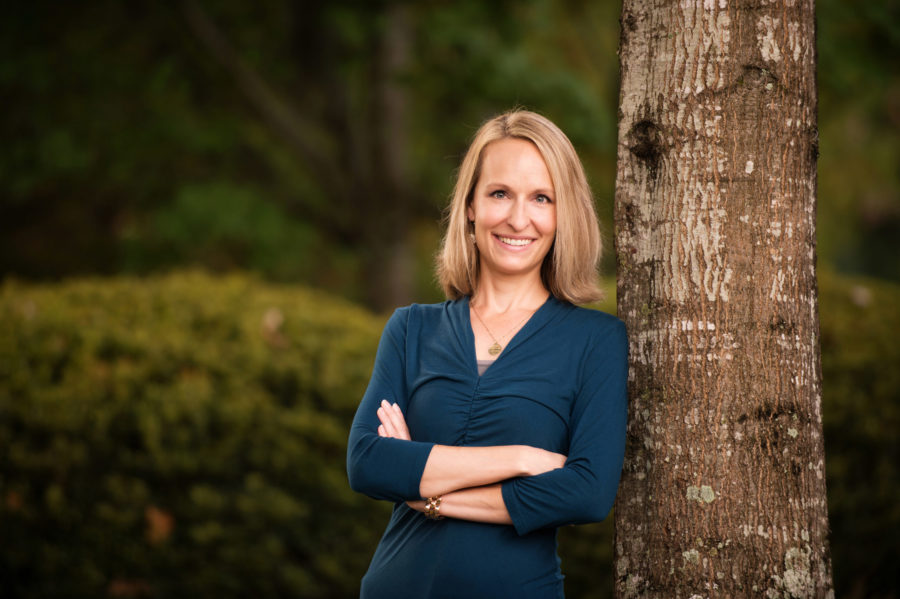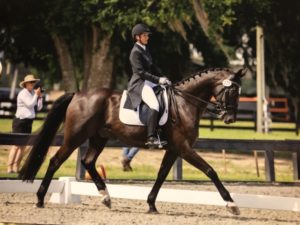Health Through Horses: Meet Alissa Dragstedt
Photo by Footstone Photography
Dr. Alissa Dragstedt, DMD was born and raised in Germany. Her parents, both teachers for the Department of Defense, instilled in her a love for travel and adventure at a young age. After completing her Bachelor’s degree from the University of Florida, she enrolled in the College of Dentistry and discovered her passion for pediatric care. She subsequently completed a 2-year residency in pediatric dentistry at UF. She has been the owner of Grins and Giggles Pediatric Dentistry in Jonesville since 2014. She serves as a mock Board examiner for the University of Florida and is active in the Alachua County Dental Society. She lives with her husband and two children in Newberry.
How did you get into horseback riding and how long have you been doing it?
I began horseback riding at the age of 10. Growing up in Germany, there were many local riding clubs, so I started in my town’s riding club with my sister. I have now been riding for over 30 years!
Do you ride English or Western? What is the difference?
I ride English, specifically in a discipline called dressage. The basis of all English riding is dressage, which is all about the fusion of the human mind with the horse’s body and abilities. The synergy between the rider’s intentions and the horse’s responses and submission are paramount in this type of discipline. Dressage dates back to the days of the cavalry, when soldiers’ lives depended on highly trained horses in battle. Such horses required the agility to turn on a dime, take off at top speed from a standstill, and be very maneuverable while the soldier was in battle. A horse may also have to jump over an obstacle to get away in battle. All English disciplines stem from these general concepts. Western riding traces its basis back to the American experience
of cowboys riding on the range. These horses also required agility and rideability, performing such functions as herding cattle, roping calves, and assisting the cowboy in many different tasks around the farm and on the range. It’s fascinating that today’s modern English and Western competitions are derived from the historical roles in which horses have served for centuries!
Tell us about your horses. What breed are they? Do any of them have interesting stories or backgrounds?
I have several fabulous horses! My main competition horse, Donner, is a 20-year-old Hannoverian warmblood.
I bought him as a foal and we have been together ever since. He has been my primary ride during dental school, as I became a mother, during my residency, and throughout my career. He has been a constant in my life who is loyal, kind and consistent.
Photo by Susan Stickle
How often do you get to ride your horses? Where do you ride?
I ride around 4-5 days per week at a farm in Ocala where my horses are currently boarded.
What does your horse caretaking schedule look like? How do you balance this with the demands of work and family?
My horse caretaking schedule consists of 20 minutes of thorough grooming and hoof-picking prior to my ride. A training ride is about 40 minutes per horse. After the ride, they are cooled down and rinsed off. The feeding and turnout is taken care of by the management of the barn where they are boarded.
I have always balanced my life in an order of hierarchy:
1 Family
2 Career
3 Horseback Riding
My secret to success would be to give credit to all of the wonderful people that support me and help me with this work/life balance, with the greatest gratitude going to my wonderful husband.
What advice would you give others who want to try horseback riding?
I would say go for it! I would advise anyone interested to understand a few key things before embarking on this sport:
- Horses are wonderful, kind, hard-working creatures. Understand that horses are flight animals and can
be dangerous. It is our responsibility to learn how to communicate with horses in a kind and harmonious way. - It is imperative to find a good trainer. A trainer who
is knowledgeable and kind can make this sport a very rewarding activity. - Horseback riding is for you if you like the outdoors, you are a lover of animals, you enjoy learning new things (it’s like learning a foreign language!), you are patient, and you are kind.
- The sport takes time and practice, and the more you put into your passion for the sport, the more potential benefits you can achieve.
I’ve enjoyed horseback riding as a lifelong sport. It gets me outdoors, it is key to having a good posture and balance, it gives me camaraderie with horses and fellow horseback riders, and it increases my overall fitness.
What other types of leisure activities do you enjoy?
I supplement my horseback riding with yoga, jogging and an occasional workout. Being in the dental field places me in less-than-ideal postures throughout the entire day. Horseback riding and yoga both have been very good for strengthening my core muscles which give me a healthy posture and improve my overall level of fitness. When time permits, I also enjoy traveling and cooking.
How do you live a wellness360 life (balanced/well rounded/happy)?
I am incredibly grateful for my life. I believe that for me living a balanced, well-rounded and happy life starts
first and foremost with my family. My husband and I strive very hard to raise hard-working, compassionate
and independent children. I have a very professionally rewarding career with a wonderful dental partner and the best support team with whom I have ever had the honor of working. They are all talented and dedicated, which makes my career and life balance very easy. Lastly, for myself, I try to live a fit and healthy life with gratitude. I do my best to make healthy food choices while incorporating horseback riding and yoga into my daily routine, and I have never been more fit and balanced as I am today!
RELATED ARTICLES
How Food Can Improve Our Moods
Alachua County’s Best Friends: Sunny
Spotlight360: Meet Gaby Rubeis
Local Women Battle Ovarian Cancer, Part 1


